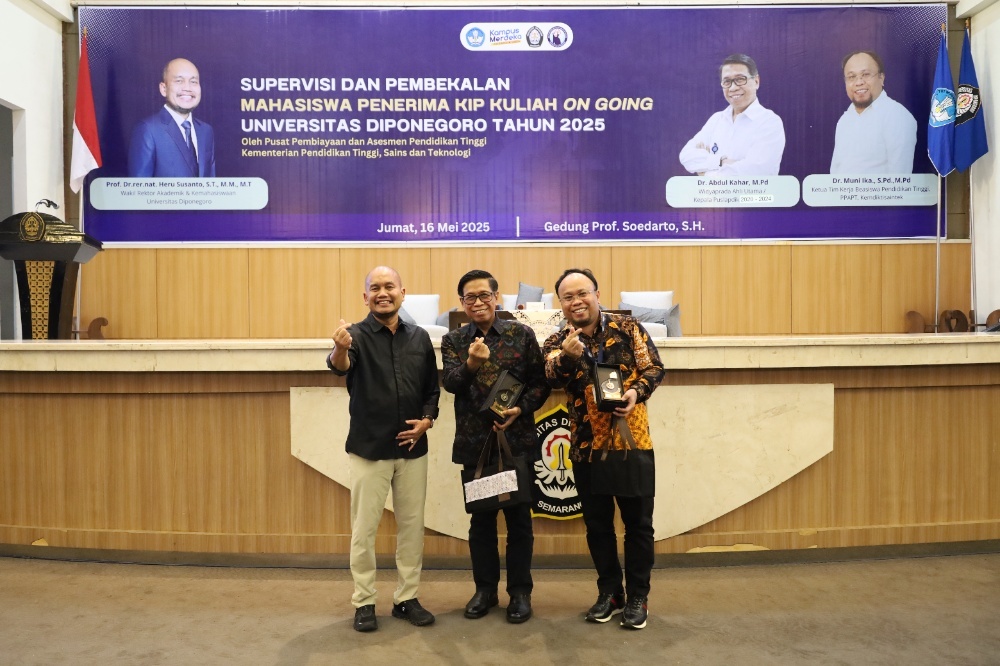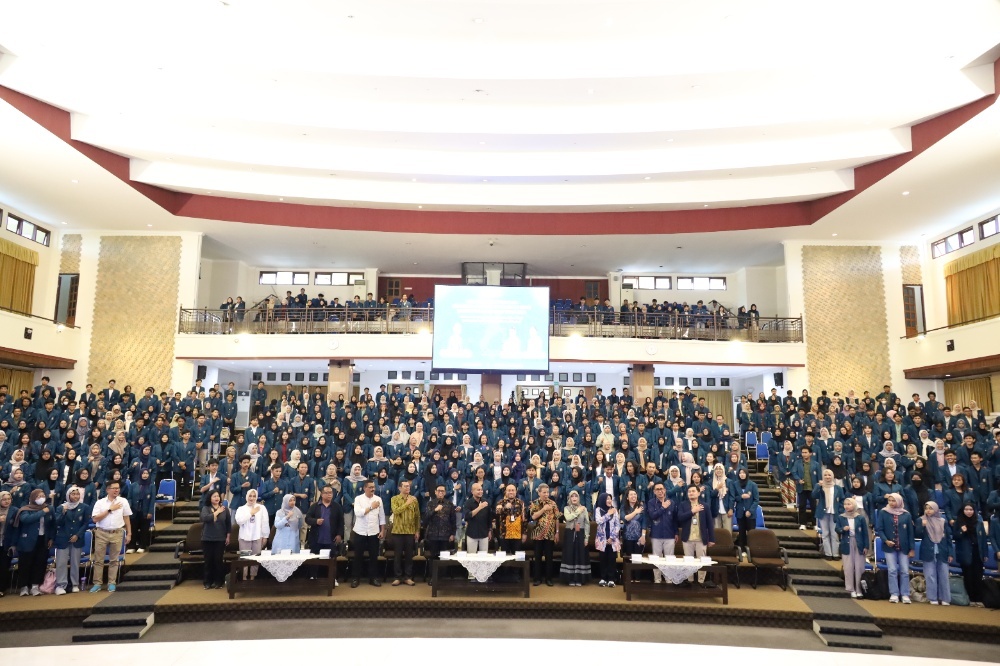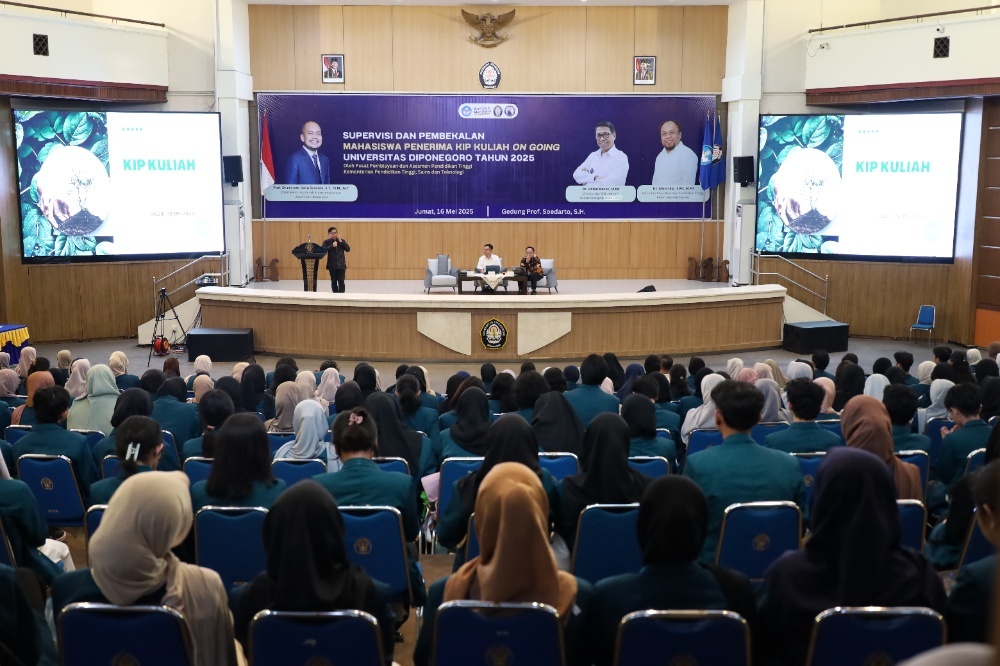UNDIP, Semarang (May 16, 2025) – As part of its ongoing commitment to inclusive and high-quality higher education for all Indonesians, Universitas Diponegoro (UNDIP), through its Directorate of Student Affairs and Alumni, held a supervision and orientation session for ongoing recipients of the KIP Kuliah scholarship program on Friday, May 16, 2025. The event took place at the Prof. Sudarto, S.H. Building on UNDIP’s Tembalang campus and was attended by hundreds of students from various faculties and schools across the university.
The event was officially opened by Prof. Dr.rer.nat. Heru Susanto, S.T., M.M., M.T., UNDIP’s Vice-Rector for Academic and Student Affairs. He emphasized that the session reflects the university’s commitment to guiding scholarship recipients in maximizing their academic and personal development opportunities, especially in higher education. He stressed the importance of students being aware of their responsibilities and potential.
“As of 2024, the total number of KIP Kuliah scholarship recipients at UNDIP reached 6,061 students,” Heru stated. “That means over 10% of our student body receives KIP Kuliah funding—and that’s not even counting other scholarship programs.”
“You are among the chosen few who have earned the government’s trust and full support through KIP Kuliah. Use this opportunity wisely—not just to complete your studies, but to become the next generation of high achievers who uphold integrity and grow into resilient, honest individuals who make real contributions to society,” he urged.

The orientation featured two prominent national speakers who offered in-depth insights. Dr. Abdul Kahar, M.Pd., Senior Expert at the Directorate of Early Childhood and Primary Education, Ministry of Education, led the first session. He presented updated data on budget allocations and recipient numbers for 2024 and 2025, highlighting an increase in the KIP Kuliah budget to Rp14.7 trillion, benefiting more than one million students.
Dr. Kahar described KIP Kuliah as a national strategic program aimed at producing highly competitive and capable human resources. His presentation emphasized the need to evolve from mere repetition to creativity and, eventually, innovation that delivers real impact.
Dr. Kahar encouraged students to develop their knowledge, skills, and attitudes—focusing on creativity, innovation, interpersonal abilities, and digital competencies. “In the future, relevant skills won’t just be about technology, but also interpersonal communication, leadership, and emotional intelligence,” he said, quoting former President B.J. Habibie: “Success doesn’t belong to the smart, but to those who keep trying.”
In the second session, Dr. Muni Ika, S.Pd., M.Pd., Chair of the Higher Education Scholarship Task Force at the Ministry of Education’s PPAPT division, elaborated on the technical implementation and target criteria of the 2025 KIP Kuliah Merdeka program. He detailed how eligibility is determined through integrated data systems, including DTKS and PPKE. He stressed the importance of accurate targeting and improved inter-ministerial data integration, which was made possible through the SIM KIP Kuliah system.
“One of the keys to this program’s success is how actively universities like UNDIP guide students—not just to receive aid, but to graduate on time and be competitive,” said Dr. Muni Ika.
She also outlined conditions under which KIP Kuliah scholarships may be revoked, emphasizing the need for recipients to maintain academic performance, adhere to ethical standards, and avoid legal or disciplinary violations.
The event was moderated by Muhammad Muntafi’, S.Sos., who kept the discussion dynamic and engaging. Students eagerly posed questions, shared responses, and recounted their experiences studying with the support of KIP Kuliah funds.
The event served not only as an administrative checkpoint but also as an inspiring forum to strengthen the motivation and sense of responsibility among KIP Kuliah recipients, reinforcing UNDIP’s commitment to advancing inclusive and sustainable higher education. (Public Communication/UNDIP/DHW)











